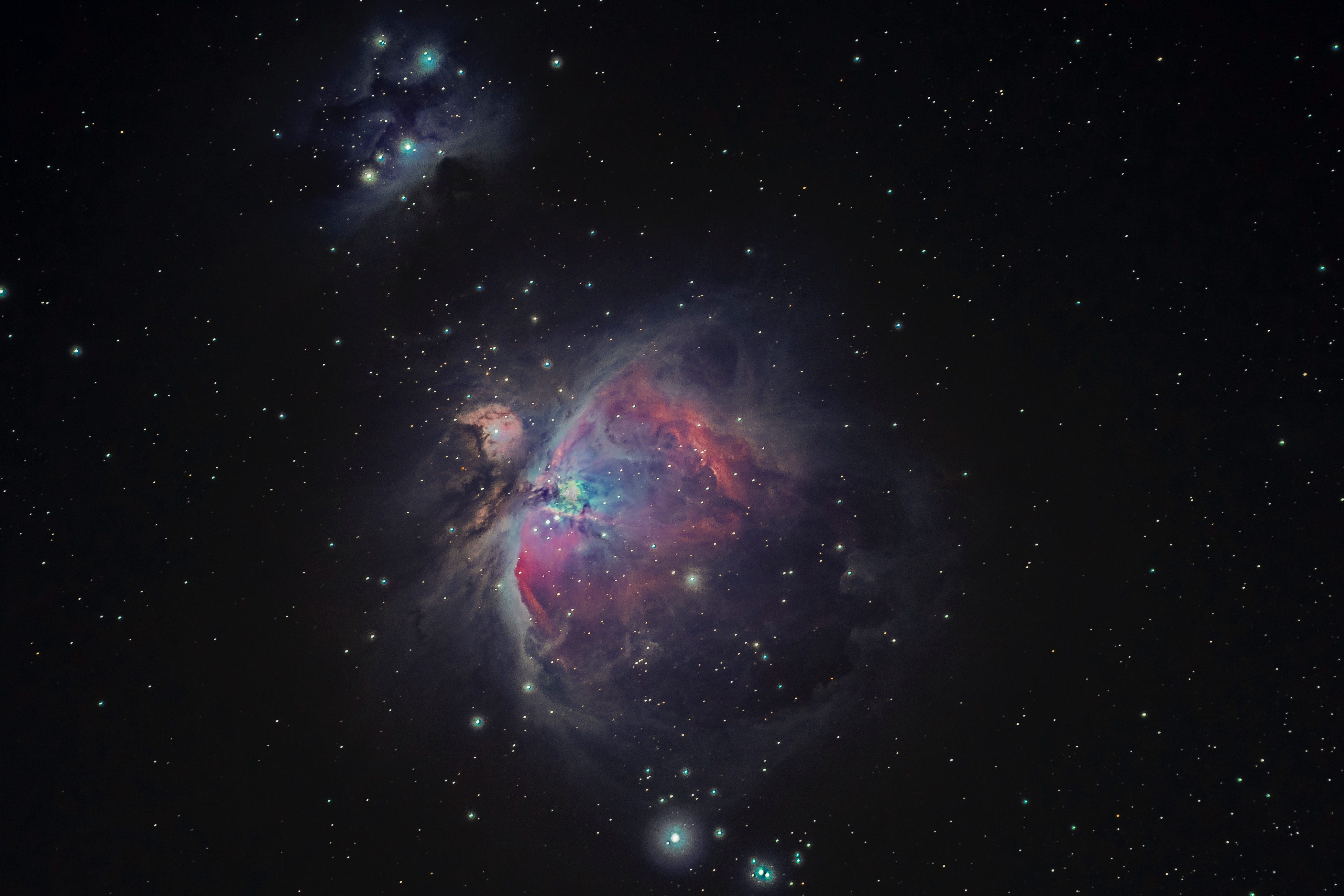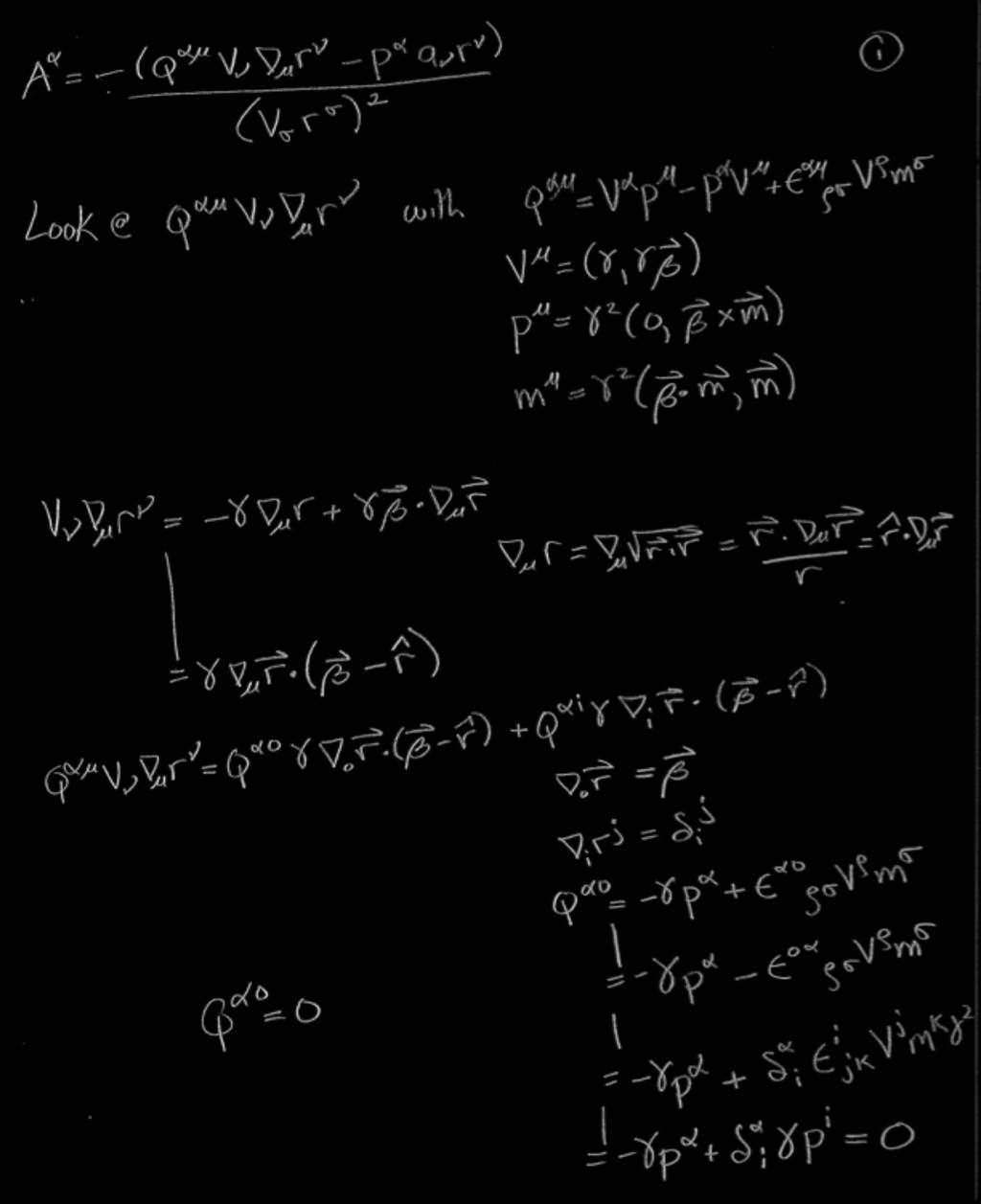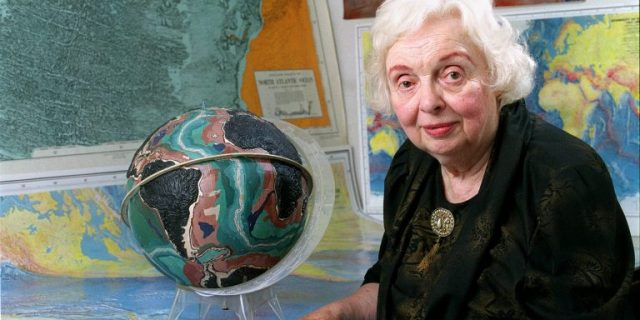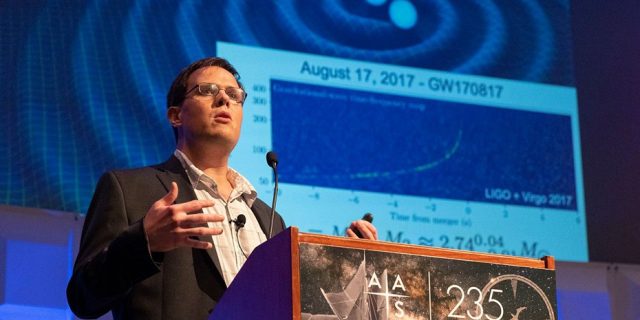The discoveries made by basic scientists may lead to surprising and previously unknown practical advances – in medicine, technology, industry – and examples of basic science fueling the pipeline of innovation abound. But the goal of fundamental science is first and foremost to advance human knowledge and lead to greater understanding of the universe around us.

ORIGINS
Columbia’s Origins Initiative seeks to bring our unique talents from diverse fields ranging from Physics to Psychology, paired with expertise in philosophy, law, and religion, to understand the universe and our place within it. Centered on three fundamental Origins themes – Origins of the Universe, Origins of Life, and Origins of Consciousness – we are positioned to study and address some of the most fundamental questions humans have asked about ourselves and our place within the cosmos.

GRAVITATIONAL WAVES
Physicists have just found a way to observe gravitational waves, disturbances in the fabric of space-time. Caused by violent events such as black holes colliding, supernovae exploding, and even potentially someday the Big Bang itself, these waves offer us a new way of observing these powerful cosmic events. This new way of seeing the universe may also lead to insight into its fundamental laws, revealing things that we have yet to imagine.

REIMAGINING ASTRONOMY
Modern astronomy has expanded beyond its origins as a pursuit of a lone academic atop a mountain to include vast data generated by collaborative teams using space and ground-based surveys and simulations run on the most powerful supercomputers. Pupin Hall, Astronomy’s home, was built 90 years ago based on a 19th century model of higher education. We now have the opportunity to reimagine Astronomy’s space as it should be for the 21st century.
-
Maybe you already know that she created some of the first maps of the ocean floor and helped discover plate tectonics. Here are some lesser-known facts about this history-making cartographer.
-
Today, Columbia announced the $21.5 million gift, which will advance research and teaching in chemistry at the Faculty of Arts and Sciences, Columbia College, and the Graduate School of Arts & Sciences.
-
Research on the origins of gold and other heavy metals garners the nation's largest unrestricted scientific prize for young scientists.








